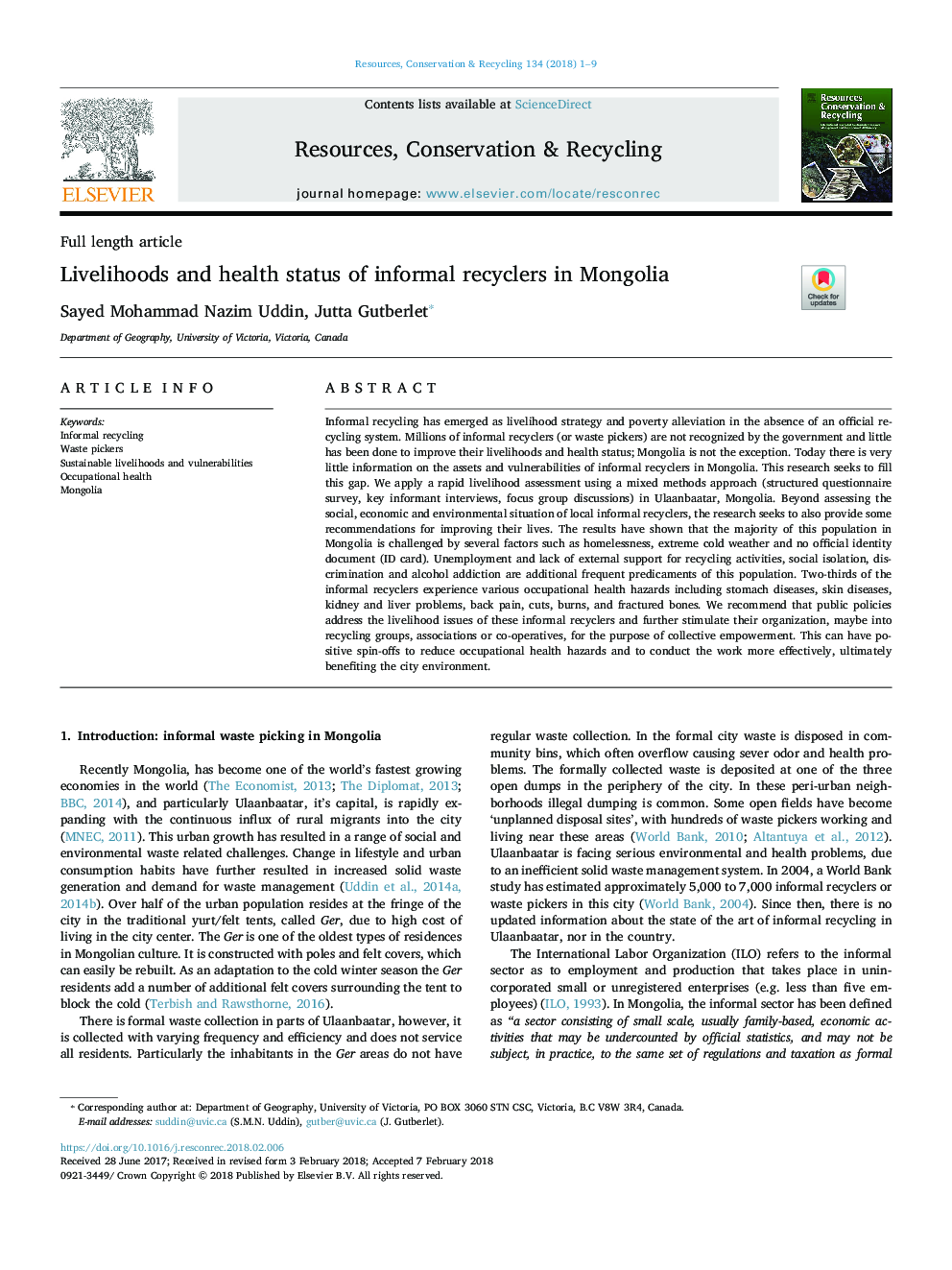| Article ID | Journal | Published Year | Pages | File Type |
|---|---|---|---|---|
| 7494107 | Resources, Conservation and Recycling | 2018 | 9 Pages |
Abstract
Informal recycling has emerged as livelihood strategy and poverty alleviation in the absence of an official recycling system. Millions of informal recyclers (or waste pickers) are not recognized by the government and little has been done to improve their livelihoods and health status; Mongolia is not the exception. Today there is very little information on the assets and vulnerabilities of informal recyclers in Mongolia. This research seeks to fill this gap. We apply a rapid livelihood assessment using a mixed methods approach (structured questionnaire survey, key informant interviews, focus group discussions) in Ulaanbaatar, Mongolia. Beyond assessing the social, economic and environmental situation of local informal recyclers, the research seeks to also provide some recommendations for improving their lives. The results have shown that the majority of this population in Mongolia is challenged by several factors such as homelessness, extreme cold weather and no official identity document (ID card). Unemployment and lack of external support for recycling activities, social isolation, discrimination and alcohol addiction are additional frequent predicaments of this population. Two-thirds of the informal recyclers experience various occupational health hazards including stomach diseases, skin diseases, kidney and liver problems, back pain, cuts, burns, and fractured bones. We recommend that public policies address the livelihood issues of these informal recyclers and further stimulate their organization, maybe into recycling groups, associations or co-operatives, for the purpose of collective empowerment. This can have positive spin-offs to reduce occupational health hazards and to conduct the work more effectively, ultimately benefiting the city environment.
Related Topics
Physical Sciences and Engineering
Energy
Renewable Energy, Sustainability and the Environment
Authors
Sayed Mohammad Nazim Uddin, Jutta Gutberlet,
